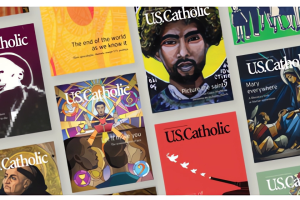The Employment Non-Discrimination Act (ENDA) looks like it might have some legs in the Senate, where a 60-vote majority is required to move any piece of legislation forward and avoid filibuster. This particular bill has been hanging around the Senate for about 20 years. (And though it now looks like it might get past the Senate, the House seems unlikely to even take it up for a vote.)
The ENDA would add federal protection for gender identity and sexual orientation to a long list of discrimination protections, including race, creed, religion, sex, and national origin. The bill would, quite simply, "prohibit discrimination in hiring and employment on the basis of sexual orientation or sexual identity for civilian, non-religious employers with at least 15 employers."
It seems a fairly simple and straightforward piece of legislation, one that would protect LGBT persons from the kind of discrimination that can seriously affect their ability to work, to put food on the table, and to make ends meet.
At first glance this seems like good news. The Catholic Church has long affirmed the dignity of workers against unjust discrimination. Furthermore, despite all of the rhetoric opposing same-sex marriage, the church does affirm the inherent dignity of LGBT persons.
It seemed like good news, that is, until Bishop Stephen Blaire of Stockton, CA, Archbishop Salvatore Cordileone of San Francisco, and Archbishop William Lori of Baltimore sent a letter to U.S. senators about the bill. In the letter, they wrote "Thus the Catholic Church has consistently stood with workers in this country and continues to oppose unjust discrimination in the workplace. No one should be an object of scorn, hatred, or violence for any reason, including his or her sexual inclinations (see Catechism of the Catholic Church [CCC], no. 2358)."
The bishops then go on to make the case that senators should vote against this legislation because, among other reasons, it might violate their religious freedom, despite the fact that the legislation only applies to non-religious employers: Churches, religious organizations, and religious schools would all be exempt from ENDA.
In light of the change in tone that Pope Francis has represented in the church over the last eight months, it is significant, if not surprising, that the bishops have chosen to spend more political capital opposing a bill that already includes a religious exemption, and that furthermore has nothing to do with same-sex marriage. The bishops are splitting hairs over a bill that would protect a group of people, guaranteeing them, at the very least, the legal right to work.
As of publishing this post, ENDA hurtled the filibuster in the Senate to move ut of committee. The Senate looks likely to vote on the bill in the next few days, where it will head to the House, where Speaker Boehner is unlikely to allow it to be brought to a vote.












